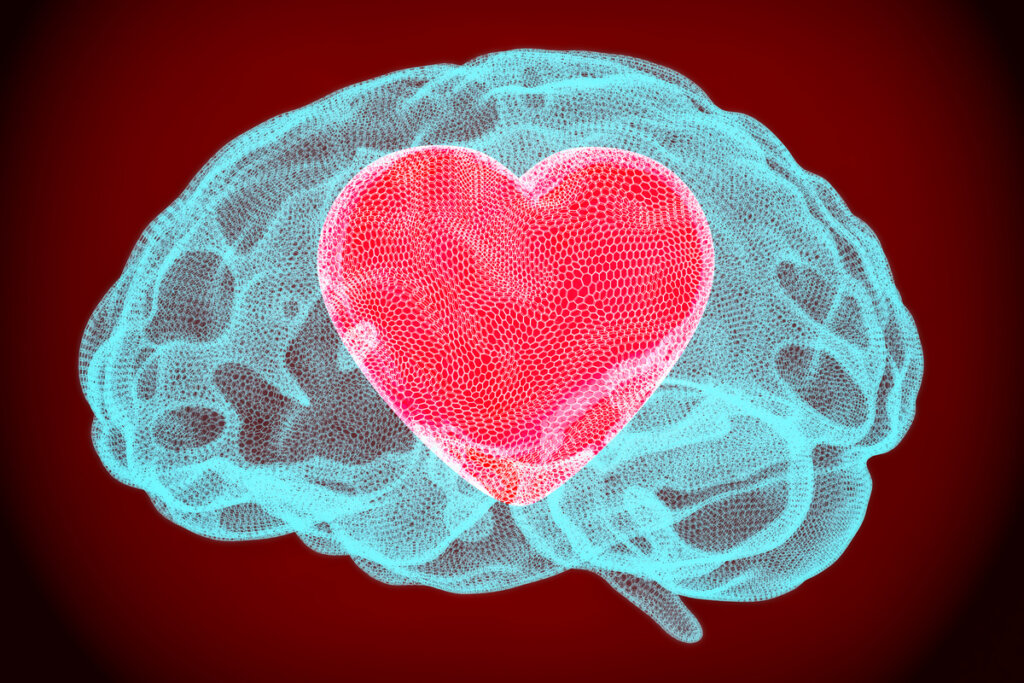How First Love Affects the Brain


Written and verified by the psychologist Valeria Sabater
You live your first experiences of childhood and adolescence with special intensity. So much so that sometimes, as an adult, you feel like you’d like to relive certain experiences again for the first time. For example, no doubt you can remember how a certain book, movie or series, music group, or, of course, certain people affected you.
First love is often a mixture of fireworks and pain. It’s both exciting and sad at the same time. That’s because, despite the experience being so special, young lovers are completely new to these situations. Consequently, there are often disappointments, occasional tears, and, of course, valuable learning.
When we see adolescents suffer from their first crushes, we tend to tell them not to worry, it’s not the end of the world, and that there are plenty more fish in the sea. We do it with the authority of those who believe they’ve lived through it all and so we don’t hesitate to give advice.
However, science claims that these first disappointments in love are the worst and the most painful. That’s because the young mind doesn’t yet have any experiential reference with which to compare the pain of their broken heart. Therefore, they experience it as the end of the world, as the worst of tragedies.
For this reason, the first emotional troubles of adolescents shouldn’t be underestimated or infantilized. Indeed, these first heartbreaks will scar them in many ways.
The feelings we experience with our first loves create models in our brains for how we’ll approach future relationships.

First love and brain development
What does love mean to you? Interestingly, the way in which you understand your relationships is nourished by your experience with your first love. Moreover, it doesn’t matter if that experience was orchestrated by unfulfilled desires, disappointments, or immaturity.
In fact, the person who first activated in you the machinery of desire, tenderness, fascination, and passion forms a permanent component of your mental and cerebral record. A study conducted by the University of Southwest China claims that the neurobiology of love is tremendously complex. This is because it’s activated in the reward and dopamine networks, amygdala, nucleus accumbens, and prefrontal cortex.
This neurochemical storm can be extremely intense, turbulent, and chaotic. In fact, figures like the anthropologist, Helen Fisher, remind us that love is like an addiction. This helps us understand the meaning behind the first experience of love in an adolescent whose brain is still developing. It seems that first love doesn’t only print a permanent memory, but it builds the foundations of how the individual will understand relationships from that moment on.
Youngsters of 14, 15 or 16 years old experience their first loves intensely. At this stage, they have hardly any other responsibilities than experiencing, learning, and feeling. This means that their first loves leave a permanent mark on them.
First love acts as a standard for all your subsequent loves
There are three ways in which you experience your relationships and bond with others. The first is linked to your family and the models you witnessed at home. Indeed, how your parents treated each other and offered affection configured your first ideas of what (supposed) love should be.
Second is attachment and the way in which your caregivers bonded with you. For example, a secure attachment allows you to build more positive, autonomous, and satisfying relationships. Third is first love. These experiences lay the foundations for all subsequent relationships.
Therefore, with your first love, you configure the ideas of what you hope to find in your next partner, as well as what you shouldn’t accept. Gradually, over time, you build an emotional experience in which, whether you like it or not, your first love still acts as a foundation. Indeed, although it may now be far away, its structure is still there, lying dormant within you.

Emotional memory is most intense during the first two decades of life
Harvard University (USA) conducted a study on human cognitive development. This research defined the ages at which we reach our maximum thresholds of memory processing, attention, reflection, etc.
One of their most striking claims was that emotional memory reaches its highest peak of functioning between the ages of 15 and 26. This would mean that everything you experience during that period leaves a deep mark on you, for better or worse.
For example, certain settings, movies, or even some people make you intensely remember those past experiences that are immersed in exciting and even nostalgic emotions. In effect, your first love acts as an anchor of your emotional memory, to which it’s really easy to return when you least expect it.
There are tragic and even obsessive loves that, for many reasons, sometimes prevent us from turning the page.
Holding on to memories of yesterday
As a rule, humans are nostalgic. Therefore, your mind likes to dive frequently into your past and navigate through happy memories and events (at times even the not-so-happy ones). You might think about what could’ve been. You also ponder on what you should’ve done but didn’t.
Occasionally remembering your first love is positive. It allows you to see yourself in all your innocence and glimpse a more innocent and luminous version of yourself. It also helps you to become aware of everything you’ve learned.
However, you shouldn’t cling excessively to your past. Maybe your experience of first love wasn’t particularly positive and the following ones weren’t very gratifying either. But you mustn’t be a captive of yesterday’s suffering. Life is happening now and love will always be worth the effort. So, make sure you open yourself up to new opportunities.
Finally, Albert Einstein once said that love can’t be explained in terms of physics and chemistry. However, today, the fields of neuroscience and psychology certainly allow us to understand many of the mysteries of its ins and outs.
All cited sources were thoroughly reviewed by our team to ensure their quality, reliability, currency, and validity. The bibliography of this article was considered reliable and of academic or scientific accuracy.
- Earp BD, Wudarczyk OA, Foddy B, Savulescu J. Addicted to love: What is love addiction and when should it be treated? Philos Psychiatr Psychol. 2017 Mar;24(1):77-92. doi: 10.1353/ppp.2017.0011. PMID: 28381923; PMCID: PMC5378292.
- Hartshorne JK, Germine LT. When does cognitive functioning peak? The asynchronous rise and fall of different cognitive abilities across the life span. Psychol Sci. 2015 Apr;26(4):433-43. doi: 10.1177/0956797614567339. Epub 2015 Mar 13. PMID: 25770099; PMCID: PMC4441622.
This text is provided for informational purposes only and does not replace consultation with a professional. If in doubt, consult your specialist.








